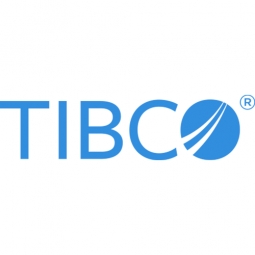Download PDF
XL Axiata Calls on Fast Data to Disrupt Telco Markets
Technology Category
- Platform as a Service (PaaS) - Connectivity Platforms
- Analytics & Modeling - Predictive Analytics
- Application Infrastructure & Middleware - Data Exchange & Integration
Applicable Industries
- Telecommunications
Applicable Functions
- Sales & Marketing
- Business Operation
Use Cases
- Predictive Maintenance
Services
- System Integration
- Software Design & Engineering Services
- Training
The Challenge
In 2007, XL committed to becoming a leader in a challenging market, one with 98 percent prepaid subscriptions and a state-owned telco that held over 50 percent market share. One challenge was that functional IT systems were in discrete silos, which did not allow the company to respond and support the business effectively. XL required a platform that would provide reliability, scalability, and allow for agile delivery of functionality. Additionally, XL's marketing challenge was to predict customer desires to optimize sales and marketing, understand customer needs, and identify opportunities to provide value.
About The Customer
XL Axiata is a telecommunications company based in Indonesia, aiming to become a leader in the mobile Internet market. The company operates in a highly competitive environment with 98 percent prepaid subscriptions and a state-owned telco holding over 50 percent market share. XL Axiata's goal is to generate at least 50 percent of its revenues from data services. The company values both technology and people, focusing on leveraging its workforce to build capabilities and improve customer experience. XL Axiata is also committed to social responsibility, working on initiatives like Internet.org to bring mobile Internet to the next two billion people.
The Solution
XL chose TIBCO’s SOA-based integration platform, TIBCO Spotfire analytics, and TIBCO BusinessEvents event processing engine. TIBCO's hands-on approach and proof of concept (POC) were key factors in their selection. The integrated platform connected XL's diverse systems, enabling quick and predictable changes, which is crucial for a disruptive business. TIBCO also helped build XL's capabilities, leading to a better customer experience. The platform allowed XL to predict customer desires, offer the right products at the right time, and provide value-added services. This integration also enabled real-time monitoring and adjustment of campaigns, improving upsell and customer retention.
Operational Impact
Quantitative Benefit
Related Case Studies.

Case Study
Vodafone Hosted On AWS
Vodafone found that traffic for the applications peak during the four-month period when the international cricket season is at its height in Australia. During the 2011/2012 cricket season, 700,000 consumers downloaded the Cricket Live Australia application. Vodafone needed to be able to meet customer demand, but didn’t want to invest in additional resources that would be underutilized during cricket’s off-season.

Case Study
SKT, Construction of Smart Office Environment
SK T-Tower is the headquarters of SK Telecom. Inside the building, different types of mobile devices, such as laptops, smartphones and tablets, are in use, and with the increase in WLAN traffic and the use of quality multimedia data, the volume of wireless data sees an explosive growth. Users want limitless Internet access in various places in addition to designated areas.









